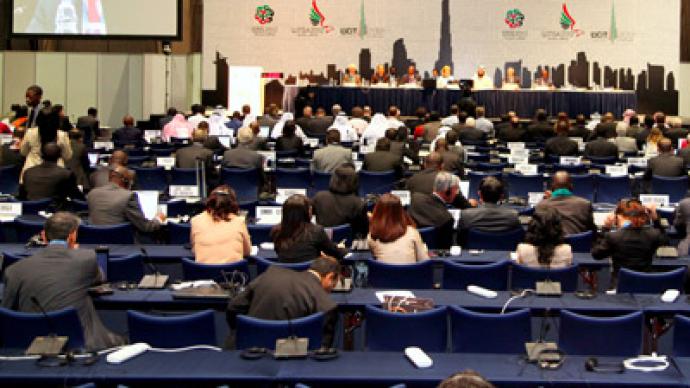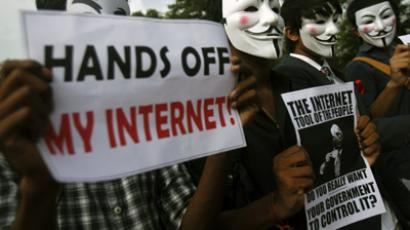Battle over Internet: US web authority challenged

Several countries including Russia, China and Saudi Arabia are seeking to reduce US dominance over the Internet. If successful the move will empower governments to silently eliminate troublesome websites.
A UN group is challenging US dominance over key parts of the Internet, which is reflected in a proposal put through at the Worldwide Conference on International Telecommunications in Dubai. Among the most controversial calls of the proposal is a reformulation of the role played by the US-based Internet Corporation for Assigned Names and Numbers, which manages the Domain Name System (DNS). Several national governments believe the management of domestic Internet addresses should be left in state hands and view US dominance as an anachronism.The nations behind the call include China, Russia, Saudi Arabia, Algeria, Bahrain, Iraq, Sudan and the United Arab Emirates.The conference is organized by the International Telecommunication Union (ITU), a United Nations agency tasked with updating the technical standards which enable different countries’ telephone networks to work together. The United States, Britain and Canada have refused to sign the treaty calling for equal rights to the governance of the Internet, interpreting it as endorsement of greater government control of the Internet."The US has consistently believed and continues to believe that the (UN treaty) should not extend to Internet governance or content," Terry Kramer, head of the US delegation to the World Conference on International Telecommunications said in Dubai.US State Department spokeswoman, Victoria Nuland, said the conference went in the “wrong direction'' by opening the door to greater government controls “instead of focusing on promoting innovation and market growth in the telecom space.''At least 10 other countries also announced in Dubai that they would not sign the treaty or would express reservations about some aspects, Kramer said.The Dubai conference is meant to review the outdated 1988 International Telecommunications Regulations (ITRs), a global treaty which “sets out general principles for assuring the free flow of information around the world, promoting affordable and equitable access for all and laying the foundation for ongoing innovation and market growth,” the ITU web page says.A draft of the resolution released by US researchers on the website WCITLeaks states that "all governments should have an equal role and responsibility for international Internet governance and for ensuring the stability, security and continuity of the existing Internet."No actual vote on the UN group proposal has taken place yet, but a consensus has been reached, Mohammed Nasser al-Ghanim, the chairman of Thursday's marathon talks reported, “The temperature in the room” showed the majority backed the proposal, he said, which reflects the strong support for reducing US rule over the Internet and allowing national governments to manage the web from within their own borders.Those in opposition say the proposal threatens internet stability and privacy of information, as control over the web would grant governments the ability to make “undesirable” sites inaccessible to the outside world.Australia, Canada, the Czech Republic, Germany and Sweden have also expressed opposition to the proposal.There were also reports that Russia withdrew the proposal for revision, but later resubmitted it with the group. The final version of the treaty will be submitted on Friday when the conference ends.














